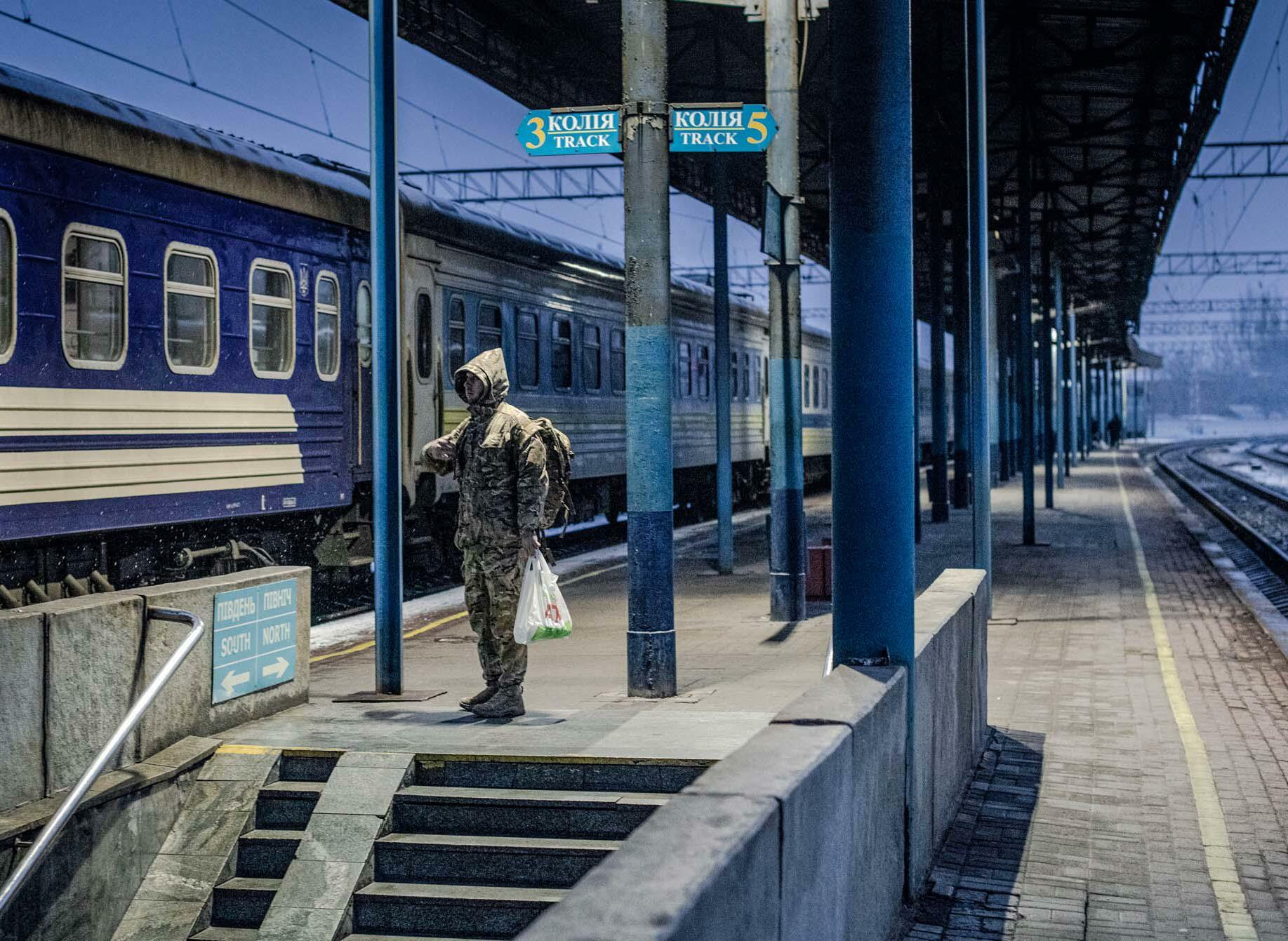
Carriage attendants slammed shut the heavy metal doors, a few people on the platform waved forlorn goodbyes in the evening gloom, and the train clattered off on its journey across the entire breadth of Ukraine, a 1,400km ride from close to the frontline all the way to the border with the European Union.
In the two years since Vladimir Putin's invasion, the railways have been Ukraine's lifeline, connecting cities and carrying millions of people to safety. Train number four has 10 carriages, nine with second-class, four-bed sleeper compartments, and one luxury carriage of two-bed compartments, for the 20-hour journey from the smokestacks of Zaporizhzhia to the cobbled alleys of Uzhhorod.
In the decades since independence in 1991, Ukraine has often been viewed through its divisions, particularly the tensions between the largely Russian-speaking east and the mostly Ukrainian-speaking west. That was always an oversimplification, masking many different and more subtle dividing lines, unsurprising in a country of more than 40 million people, with a turbulent history.
When Putin launched full-scale war two years ago, the east-west divide dissolved further. The Kremlin's idea that many Ukrainians would welcome Russia turned out to be false, and a new and broad national identity was forged in opposition to Russia's marauding armies. Even in places such as Zaporizhzhia, a grimy industrial city on the Dnipro River, of broad avenues and bombastic Stalin-era buildings, people put up fierce resistance to the Russians.
Denne historien er fra March 08, 2024-utgaven av The Guardian Weekly.
Start din 7-dagers gratis prøveperiode på Magzter GOLD for å få tilgang til tusenvis av utvalgte premiumhistorier og 9000+ magasiner og aviser.
Allerede abonnent ? Logg på
Denne historien er fra March 08, 2024-utgaven av The Guardian Weekly.
Start din 7-dagers gratis prøveperiode på Magzter GOLD for å få tilgang til tusenvis av utvalgte premiumhistorier og 9000+ magasiner og aviser.
Allerede abonnent? Logg på

The Saudi football World Cup is an act of violence and disdain
Well, that's that then. In the event there were only two notes of jeopardy around Fifa's extraordinary virtual congress last week to announce the winning mono-bids, the vote without a vote, for the right to host the 2030 and 2034 football World Cups.

AI has made the move into video and it's worryingly plausible
I recently had the opportunity to see a demo of Sora, OpenAI's video generation tool, which was released in the US last Monday, and it was so impressive it made me worried for the future.

With tyrant Assad ousted, Syrians deserve support and hope
Last week, time collapsed. Bashar al-Assad's fall recalled scenes across the region from the start of the Arab spring almost 14 years ago. Suddenly history felt vivid, its memories sharpened. In fact it no longer felt like history.

TV
The Guardian Weekly team reveals our small-screen picks of the year, from the underground vaults of post-apocalyptic Fallout to the mile-high escapism of Rivals

Albums
Murky love stories, nostalgic pop and an in-your-face masterpiece captured our critics' ears in 2024

Film
Visual language, sound, light and rhythm are to the fore in the best movies of the year

Hidden delights Our 24 travel finds of 2024
Guardian travel writers share their discoveries of the year, from Læsø to Lazio

'It's really a disaster' The fight to save lives as gang war consumes capital
Dr James Gana stepped out on to the balcony of his hospital overlooking a city under siege. \"There's a sensation of 'What's next?'. Desperation is definitely present,\" the Médecins Sans Frontières (MSF) medic said, as he stared down at one of scores of camps for displaced Haitians in their country's violence-plagued capital.

Trailblazers The inspiring people we met around the world this year
From an exuberant mountaineer to a woman defiantly facing the guns of war, here are some of the brave individuals who gave us hope in a tumultuous 2024

Votes of confidence
From India to Venezuela and Senegal to the US, more people voted this year than ever before, with over 80 elections across the world. With rising authoritarianism and citizen-led resistance revealing its vulnerabilities and resilience in the face of unprecedented challenges, has democracy reached its breaking or turning point?